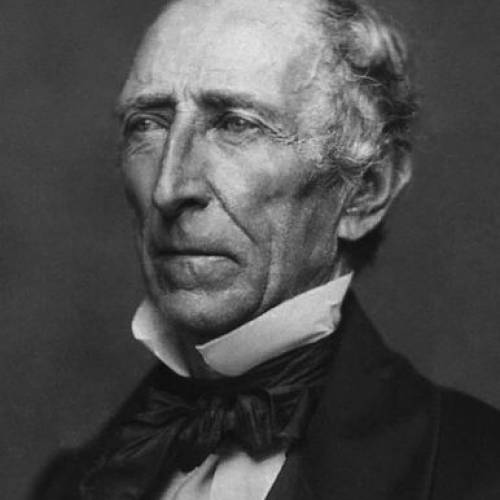 https://heaven.world/en/john-tyler
https://heaven.world/en/john-tyler
Firstname
John
Lastname
Tyler
Name
John Tyler
lived from:
1790-03-29
lived until:
1862-01-18
John Tyler was the tenth President of the United States. He was also, briefly, the tenth Vice President, elected to that office on the 1840 Whig ticket with William Henry Harrison. Tyler became president after Harrison's death in April 1841, only a month after the start of the new administration. Known to that point as a supporter of states' rights, which endeared him to his fellow Virginians, his actions as president showed that he was willing to back nationalist policies as long as they did not infringe on the powers of the states. Still, the circumstances of his unexpected rise to the presidency, and its threat to the presidential ambitions of Henry Clay and other politicians, left him estranged from both major parties. A firm believer in manifest destiny, President Tyler sought to strengthen and preserve the Union through territorial expansion, most notably the annexation of the independent Republic of Texas in his last days in office.
Tyler, born to an eminent Virginia family, came to national prominence at a time of political upheaval. In the 1820s the nation's only political party, the Democratic-Republicans, split into factions. Though initially a Democrat, his opposition to Andrew Jackson and Martin Van Buren led him to ally with the Whig Party. Tyler served as a Virginia state legislator, governor, U.S. representative, and U.S. senator before his election as vice president in the presidential election of 1840. He was put on the ticket to attract states' rights Southerners to what was then a Whig coalition to defeat Van Buren's re-election bid.
Harrison's death made Tyler the first vice president to succeed to the presidency without being elected to the office. Because of the short duration of Harrison's one-month term, Tyler served longer than any president in U.S. history who was never elected to the office. To forestall constitutional uncertainty, Tyler immediately took the oath of office, moved into the White House, and assumed full presidential powers, a precedent that would govern future successions and eventually become codified in the Twenty-fifth Amendment. A strict constructionist, Tyler found much of the Whig platform unconstitutional, and vetoed several of his party's bills. Believing that the president should set policy instead of deferring to Congress, he attempted to bypass the Whig establishment, most notably Kentucky Senator Henry Clay. Most of Tyler's Cabinet resigned soon into his term, and the Whigs, dubbing him His Accidency, expelled him from the party. Though Tyler was not the first president to veto bills, he was the first to see his veto overridden by Congress. Although he faced a stalemate on domestic policy, he had several foreign-policy achievements, including the Webster–Ashburton Treaty with Britain and the Treaty of Wanghia with Qing China.
President Tyler dedicated his last two years in office to the annexation of Texas. He initially sought election to a full term as president, but after failing to gain the support of either Whigs or Democrats, he withdrew. In the last days of his term, Congress passed the resolution authorizing the Texas annexation, which was carried out by Tyler's successor, James K. Polk. When the American Civil War began in 1861, Tyler sided with the Confederate government, and won election to the Confederate House of Representatives shortly before his death. Although some have praised Tyler's political resolve, his presidency is generally held in low esteem by historians; today he is considered an obscure president, with little presence in the American cultural memory.
Richmond (VA), United States
https://en.wikipedia.org/wiki/John_Tyler